Royal College/Associated Medical Services CanMEDS Research Development Grant — Recipients
2023
Blair Bigham, MD, MSc, DTMH, FRCPC, DRCPSC
Exploring Barriers and Enablers to Canadian Physician Advocacy
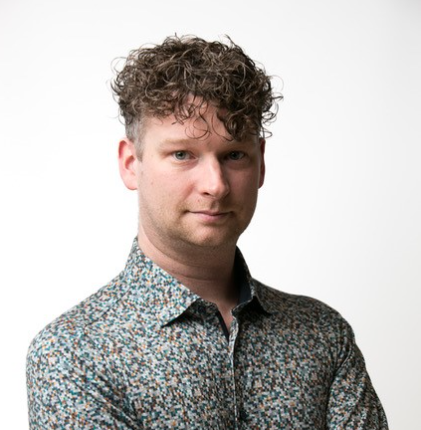
Blair Bigham, MD, MSc, DTMH, FRCPC, DRCPSC
Scarborough Health Network, Department of Medicine, Intensivist
Physicians can be important leaders in their communities yet are often ill-equipped to communicate and advocate outside the walls of their clinics and hospitals. Our work will evolve advocacy frameworks and help develop curricula that can aid medical educators and learners alike to explore science communications, embed advocacy into their practice, and impact public conversation and decisions to improve health.
2022
Andrea Gingerich, ND, MMEd, PhD
Caring for colleagues: Maintaining professional boundaries while navigating dual roles
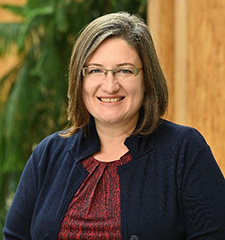
Andrea Gingerich, ND, MMEd, PhD
Assistant Professor, Division of Medical Sciences, Northern Medical Program, University of Northern British Columbia
Affiliate Assistant Professor, Department of Family Practice, Northern Rural Program, University of British Columbia
Physicians will inevitably need to provide care to — and receive care from — colleagues but, not only do our programs provide graduates with little formal guidance on how to this well, our professional boundary curricula warn that it is problematic to engage in such dual role relationships. To better prepare our graduates, we must first identify how physicians are navigating multiple roles and conceptualizing professional boundaries when accessing care or providing care to colleagues because “physician-patients” and their families deserve compassionate care too.
Candice Griffin, BSc. M.D.
The experiences of healthcare professionals in providing care to unvaccinated Covid-19 critically ill patients: a qualitative study
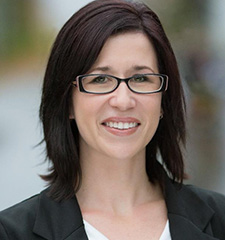
Candice Griffin, BSc. M.D
PGY 5, Critical Care Medicine, University of Toronto
COVID-19 has presented new challenges for trainees developing their clinical skills and knowledge base under the constraints of the pandemic. Providing care to unvaccinated patients with COVID-19 related illness may lead to moral distress and exacerbate burnout and empathy loss, which has been reported to occur during medical training even prior to the pandemic. Furthermore, the hidden curriculum of medicine and clinical culture in which trainees learn may be impacted by the effects of vaccine resistance on the overall health care team, through the potential development of conscious or unconscious biases towards this patient population. These potential biases may directly influence the delivery of care and patient safety. This study aims to explore how resistance to disease prevention affects health care providers and learners emotionally, morally and professionally, and if this phenomenon alters how physicians practise compassionate medicine.
2021
Arden Azim, MD
Connecting Interpersonal Competencies to CanMEDS: Towards a Blueprint of IPE in PGME
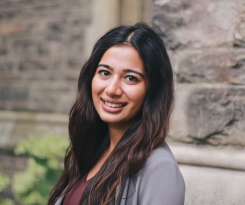
Arden Azim, MD
Resident Physician, Internal Medicine, Department of Medicine, McMaster University
Undergraduate IPE Lead, Centre for Simulation-Based Learning, McMaster University
Interprofessional collaborative practice (IPC) is essential to improving health outcomes, and interprofessional education (IPE) is vital to preparing physicians for collaborative practice. However, there is a lack of clear understanding of the current IPE landscape in postgraduate medical education (PGME). Residency curriculums are defined by the CanMEDS framework, while IPE is defined by the CIHC National Interprofessional Competency Framework. The lack of a cohesive structure linking these frameworks may be a barrier to the integration of IPE at the post-graduate level. Our team aims to map these two frameworks to develop an integrated blueprint that can be used to synchronize the delivery of IPE within CanMEDS-oriented curriculums. We also aim to develop a cross-sectional view of IPE in PGME at the level of both curriculum development and learner perspectives. This will help build systematic understanding around how IPE is situated in PGME and support the development of interprofessional among specialists in training.
Angela Towle, PhD
Bringing Patients and Society Back into the Social Accountability of a Medical School
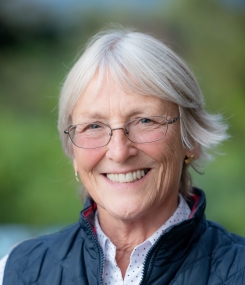
Angela Towle, PhD
Associate Professor, Department of Medicine, Faculty of Medicine, University of British Columbia
Patient & Community Partnership for Health, Office of UBC Health, University of British Columbia
This work is important to medical education because it will help medical schools to fulfill their mandate for social accountability by engaging with members of the public and patients in defining and addressing the priority health concerns of the populations they have a responsibility to serve. The involvement of patients/public in health care delivery and health research has become increasingly common and expected, but sustained patient/public involvement in medical education at an institutional level is rare. This project builds on our experience of bringing patient and community voices into health professional education, and a public consultation that shaped the mission statement and exit competencies at our medical school. In this participatory action research project, we will co-create with patients and the public a set of evidence-based guiding principles, models and processes for their authentic, responsive, ongoing and sustainable engagement in the mission, goals, curriculum and delivery of medical education.
2020
Teresa Chan, MD, FRCPC, MHPE, DRCPSC
Canvassing for CanMEDS: How are the Intrinsic CanMEDS Roles integrated into EPAs?
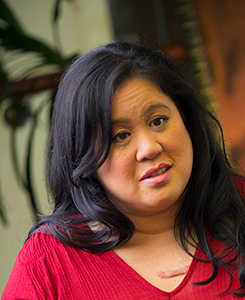
Teresa Chan, MD, FRCPC, MHPE, DRCPSC
Associate Professor, Division of Emergency Medicine and Division of Education & Innovation;
Department of Medicine, Faculty of Health Sciences, McMaster University
Adjunct Scientists in the McMaster Education Research, Innovation and Theory (MERIT),
Assistant Dean in the Program for Faculty Development, Faculty of Health Sciences, McMaster University
This work is important to medical education because…
CanMEDS has become the defining framework for the Canada – and in the transition to our latest paradigm of Competency-Based Medical Education (CBME), we must ensure that we understand how this framework is being perceived by trainees and frontline faculty. Our team is looking forward to completing this study as we feel it will be of great importance to our field as we move ahead on Competence By Design (the RCSPC’s implementation of CBME). Our study aims to discern how the CanMEDS roles integrate within entrustable professional activities, and how the CanMEDS framework ultimately is found within the assessment data that is generated by frontline faculty about trainee performance in the workplace. We hope to generate a new set of metrics that can help to guide program evaluation and improvement – especially on the trainee and faculty fronts so as to ensure that CanMEDS remains a focal point for future postgraduate training in Canada.
Jacqueline Lovatt Stern, MBBS (Hons)
What you wish you knew: Exploring readiness to advocate after transition to specialty practice
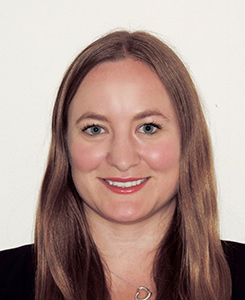
Jacqueline Lovatt Stern, MBBS (Hons)
Resident Physician, Division of Physical Medicine and Rehabilitation, University of Ottawa
This work is important to medical education because…
The transition to practice literature suggests that new-in-practice physicians feel under-prepared to enact skills like health advocacy that receive less curricular attention during postgraduate training. The purpose of our research is to understand how current training models translate to early career physicians’ perceived preparedness to advocate. Exploring the challenges they face in applying the health advocate role and the training experiences that shaped their competence, will allow us to identify gaps in postgraduate training and opportunities for continuing professional development. We anticipate that our research will lay the groundwork for a program of research innovating curricula, assessment, coaching, and continuing professional development initiatives for the Health Advocate role. Ultimately, our aim is to make advocacy training more transparent and rigorous, and make assessment of learners’ advocacy more authentic.
2019
Cheryl Lynn Holmes, MD, FRCPC, MHPE
Exploring the Patient's Role in the Medical Learning Environment
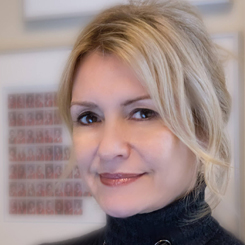
Cheryl Lynn Holmes, MD, FRCPC, MHPE
Clinical professor, Department of Medicine and Division of Critical Care Associate dean, Undergraduate Medical Education Faculty of Medicine, University of British Columbia
Abstract
How this work will inform research in medical education
Although much has been written about the medical learning environment; the patient, who is the focus of our care, has been systematically excluded from this discourse. Provision of patient-centred care seems to be de-emphasized as time with patients is eroded in busy clinical settings, whereas creating patient-present experiences solidifies the culture of medicine as patient-centred. Research in this area to date is limited, thus an exploration into how patient involvement can improve and influence the medical learning environment is needed. The purpose of this study is to explore the role of the patient as an active participant, with agency, in an authentic medical learning environment from the standpoint of the learner, the faculty and most importantly the patient. We hope to gain insight into the reinforcement of positive professional values, such as patient-centred behaviours and a respectful environment.
Kori LaDonna, PhD
Exploring patient storytelling as a pedagogical strategy for training the Intrinsic CanMEDS Roles
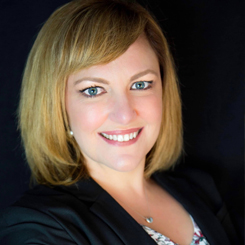
Kori LaDonna, PhD
Assistant professor, Department of Innovation and Medical Education and Department of Medicine, University of Ottawa
Abstract
How this work will inform research in medical education
The intrinsic CanMEDS Roles are essential components of compassionate, patient-centered care; yet, current pedagogical approaches may not sufficiently capture the complexities of tailoring these skills to individual patients. Every patient has a unique story about their health care journey that can provide key insights into gaps in medical training, and there is an increasing appreciation for the value of having patients actively participate as teachers and facilitators of learning. Unfortunately, concerns about feasibility, credibility and ethics limit patients’ formal and systematic engagement across postgraduate medical education. To address this, we’ve partnered with patient advisors at The Ottawa Hospital to design, implement and evaluate a storytelling curriculum to prepare patients to become effective medical educators. Our research is important because it will not only help patients tell stories that may usefully inform intrinsic role training, but it will also build the foundation for greater inclusion of patients in medical education.
2018
- Anita Cheng, MD, FRCPC, MHPE
- Taryn Taylor, MD, PhD, FRCSC
- Katherine Wisener, M.A. Ph.D (Candidate)
- Yvonne Ying, MD, MSE, Med, MSc (GlobSurg), FRCSC
2017
- Melissa Duffy, PhD